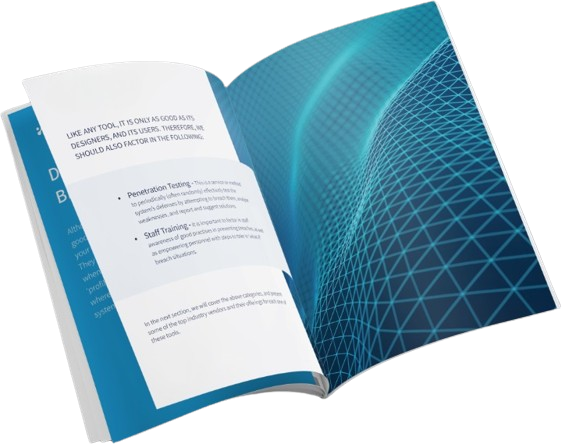Are you aware that Small Business Administration (SBA) loans offer a variety of financing options beyond what traditional banks typically provide?
As a small business owner, navigating the landscape of SBA loans can seem like a complex and overwhelming task. However, understanding the nuances of these loans can significantly impact the growth and success of your business.
In this comprehensive guide, you will uncover the key insights and practical steps to successfully secure SBA funding tailored to your specific business needs.
Whether you’re a startup or an established business, finding the right funding solution is crucial for your expansion and sustainability.
Key Takeaways
- SBA loans offer benefits such as lower down payments, longer repayment terms, and competitive interest rates.
- The 7(a) loan program is the most common and versatile type of SBA loan that can be used for working capital, equipment purchase, and debt refinancing.
- The CDC/504 loan program is designed for purchasing major fixed assets.
- Small business owners should familiarize themselves with the requirements and benefits of each SBA loan program.
Understanding SBA Loan Programs
Understanding the various SBA loan programs can be a pivotal step for small business owners seeking financing options tailored to their specific needs. SBA loans offer several benefits, including lower down payments, longer repayment terms, and competitive interest rates. To qualify for an SBA loan, there are specific requirements that businesses must meet. These requirements typically include demonstrating the ability to repay the loan, providing a detailed business plan, and showing that the business operates for profit and is located in the United States.
One of the key SBA loan programs is the 7(a) loan program, which is the most common and versatile type of SBA loan. It can be used for various purposes, including working capital, purchasing equipment, and refinancing existing debt. The 7(a) loan program has specific requirements, such as meeting size standards, demonstrating good character, and showing the ability to repay the loan.
Another notable SBA loan program is the CDC/504 loan program, which is designed for purchasing major fixed assets, such as real estate and equipment.
Understanding the specific SBA loan requirements and benefits of each program is crucial for small business owners. By familiarizing yourself with the intricacies of SBA loans, you can make informed decisions about which loan program aligns with your business’s needs and goals. It’s essential to seek guidance from SBA-approved lenders or financial advisors to navigate the various SBA loan options effectively.
Eligibility and Qualifications
To qualify for an SBA loan, small businesses must meet specific eligibility requirements, including demonstrating financial stability and providing a detailed business plan. The Small Business Administration (SBA) sets certain criteria for businesses seeking SBA loans. These include the business size, type, and use of funds.
Generally, to be eligible for an SBA loan, a small business must operate for profit, meet the SBA’s definition of a small business, be engaged in, or propose to do business in the United States, and have reasonable invested equity. Additionally, the business needs to demonstrate the need for loan funds and the ability to repay the loan. This includes providing sound business purpose for the loan and presenting a solid business plan.
The SBA loan documentation is a critical aspect of the application process. It typically includes a business plan, personal and business financial statements, profit and loss statements, projections, ownership and affiliations, business licenses, loan application history, income tax returns, resumes, and collateral.
Meeting these SBA loan requirements and providing detailed SBA loan documentation will play a crucial role in determining the eligibility of the small business for the loan. It’s essential to ensure all documentation is accurate, comprehensive, and aligns with the SBA’s requirements to enhance the likelihood of approval for the loan.
SBA Loan Application Process
The SBA loan application process involves gathering and submitting comprehensive documentation that demonstrates your business’s financial stability and repayment ability. This documentation typically includes business and personal financial statements, business certificate or license, loan application history, income tax returns, and a business plan. It’s crucial to ensure that all required documentation is complete and accurate to expedite the application process.
| SBA Loan Documentation | Description |
| Business Financial Statements | These include balance sheets, profit and loss statements, and projections. |
| Personal Financial Statements | This includes personal financial statements for all business owners. |
| Business Certificate or License | Documentation proving your business is registered and authorized to operate. |
| Income Tax Returns | Personal and business tax returns for the previous three years. |
| Business Plan | A detailed plan outlining your business’s operations, management, and financial projections. |
In addition to the documentation, understanding SBA loan interest rates is crucial. The SBA sets maximum interest rates that lenders can charge, and these rates are tied to the prime rate. As of 2021, the maximum interest rates for SBA 7(a) loans were 6.5% to 9.25%, while the rates for CDC/504 loans were around 2.231% to 2.764% above the current market rate for five-year and ten-year U.S. Treasury issues, respectively. Understanding these rates will help you assess the affordability of the loan and make informed decisions.
Choosing the Right SBA Loan
When choosing the right SBA loan, it’s important to consider the different loan types and their eligibility criteria.
Understanding the specific requirements for each loan type can help you determine which option best suits your business needs.
Analyzing the various loan types and their eligibility criteria will enable you to make an informed decision that aligns with your financial goals.
Loan Types
Explore a range of financing products available through SBA loans to find the perfect funding solution tailored to your business needs.
When choosing the right SBA loan, it’s crucial to consider the various loan types offered. Understanding SBA loan requirements and interest rates is essential for making an informed decision.
Here are some key loan types to consider:
- 7(a) Loan Program: Versatile financing for various business needs
- CDC/504 Loan Program: Ideal for real estate and equipment purchases
- Microloan Program: Small-scale funding for startups and small businesses
Each loan type has its own set of requirements and benefits, including competitive SBA loan interest rates. Carefully evaluating these options will help you secure the most suitable funding for your business.
Eligibility Criteria
To choose the right SBA loan for your business, carefully assess your eligibility based on the specific requirements and benefits of each loan type.
The SBA loan requirements typically include factors such as the size of your business, its financial standing, and the purpose of the loan.
For example, the SBA 7(a) loan is versatile and can be used for various business purposes, while the CDC/504 loan is specifically for real estate or equipment purchases.
Additionally, the SBA Express loan offers a streamlined application process, providing quick approval for qualified businesses.
Understanding these distinctions is crucial for determining which loan aligns best with your business needs and financial situation.
Managing SBA Loan Funds
Managing SBA loan funds involves strategic allocation and diligent monitoring to ensure optimal utilization for your small business’s growth and stability.
- Strategic Allocation: Properly allocating SBA loan funds involves identifying the areas of your business that require immediate financial support. It’s essential to prioritize investments that will directly contribute to revenue generation and long-term sustainability.
- Diligent Monitoring: Regularly monitoring the usage of SBA loan funds enables you to track the effectiveness of your investments. Implementing robust financial tracking mechanisms and performance metrics will help in identifying any inefficiencies and making timely adjustments.
- Optimizing Cash Flow: Maximizing loan funds also involves optimizing your small business’s cash flow. This includes managing accounts receivable, accounts payable, and inventory turnover to ensure that the SBA loan funds contribute to maintaining healthy working capital.
Successfully managing SBA loan funds requires a comprehensive understanding of your business’s financial needs and strategic planning to ensure that the funds are put to their best use. By strategically allocating funds, diligently monitoring their usage, and optimizing cash flow, you can maximize the impact of SBA loan funds on your small business’s growth and stability.
SBA Loan Repayment and Forgiveness
When it comes to SBA loan repayment and forgiveness, understanding the available options and eligibility criteria is crucial.
You’ll want to explore the various loan repayment plans offered by the Small Business Administration and assess which one aligns best with your business’s financial situation.
Additionally, familiarize yourself with the forgiveness eligibility criteria to ensure you meet the necessary requirements for potential loan forgiveness.
Loan Repayment Options
Navigating SBA loan repayment and forgiveness options is an essential aspect of managing your small business finances effectively. When considering loan repayment, it’s crucial to explore various options to ensure financial stability.
Here are some key factors to consider:
- Loan Refinancing: Assess the possibility of refinancing your SBA loan to potentially secure better terms and lower interest rates.
- Loan Default: Understand the implications of loan default and explore strategies to avoid this situation.
- Forgiveness Programs: Familiarize yourself with the eligibility criteria and application process for loan forgiveness programs to alleviate repayment burdens.
Being informed about these options will allow you to make well-informed decisions that align with your business’s financial goals.
Forgiveness Eligibility Criteria
To determine your eligibility for loan forgiveness under the SBA program, it’s essential to thoroughly understand the established criteria and requirements. The SBA loan forgiveness process requires careful documentation to support your application.
Documentation requirements for SBA loan forgiveness may include payroll tax filings, state income, and unemployment insurance filings, as well as other financial and non-financial documentation. It’s crucial to ensure that all documentation is accurate, complete, and in line with the SBA’s guidelines to facilitate a smooth forgiveness process.
Understanding and fulfilling these documentation requirements are vital steps in maximizing your chances of successful loan forgiveness. By diligently meeting these criteria, you can navigate the SBA loan forgiveness process with confidence and increase the likelihood of a favorable outcome.
Frequently Asked Questions
Can I Use an SBA Loan to Refinance My Existing Business Debt?
Yes, you can use an SBA loan for debt refinancing, which is a form of debt consolidation. SBA loans can be used to refinance existing business debt, offering the opportunity to streamline multiple debts into a single loan with potentially better terms.
This can help ease the burden of high-interest debts, improve cash flow, and simplify your financial obligations. It’s a strategic move for managing and reducing your overall debt.
What Are the Common Reasons for SBA Loan Application Rejections?
When it comes to SBA loan application rejections, credit history and business plan are key factors. Lenders scrutinize credit history to assess your ability to manage debt. A strong business plan is equally crucial, demonstrating your ability to generate revenue and repay the loan.
Keep credit in check and craft a comprehensive business plan. These steps heighten your chances of SBA loan approval and propel your business forward.
Are There Any Industry-Specific Restrictions for SBA Loans?
Industry-specific restrictions for SBA loans depend on the type of business and its eligibility criteria. Certain industries, like lending and real estate investment, may face more restrictions due to higher risks.
However, SBA loans provide flexibility in terms of loan forgiveness and repayment, making them suitable for various industries.
Understanding the specific restrictions and requirements for your industry is crucial for a successful SBA loan application.
Can I Use an SBA Loan for Purchasing a Franchise Business?
Yes, franchise financing through SBA loans offers business ownership opportunities. It allows you to access secure and reliable funding options with a fast and simple application process.
The SBA provides a range of financing products and quick approval for qualified businesses, making it ideal for purchasing a franchise. With personalized consultation and support, and an extensive network of lenders, you can navigate the process with expert guidance and increase your chances of approval.
What Are the Key Differences Between SBA Loans and Traditional Bank Loans?
When considering SBA loan eligibility, it’s crucial to note the key differences between SBA loans and traditional bank loans.
SBA loans typically offer longer loan terms and lower down payments, making them more accessible for small businesses. In contrast, traditional bank loans often have shorter terms and higher down payment requirements.
Understanding these distinctions can help you make an informed decision about the best financing option for your business’s needs.
Final Thoughts
You’ve now gained a comprehensive understanding of navigating SBA loans for your small business.
Did you know that in 2020, the SBA approved over 96,000 loans totaling $28.2 billion to small businesses?
With this knowledge, you can confidently approach the SBA loan landscape and secure the funding you need to grow and expand your business. Remember, personalized consultation and expert guidance are available to support you every step of the way.



